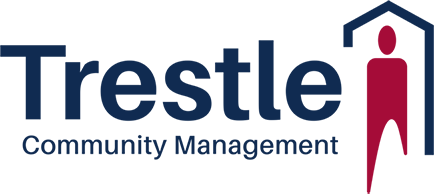What is the Board’s Role in a Condo or HOA Community?
Community Associations, whether they be Homeowner Associations (HOAs) or Condominium Associations (COAs), serve an important role in maintaining and improving the quality of life for residents, but running a Community Association is no easy task. There are numerous responsibilities that must be taken care of, from managing finances to enforcing rules and regulations, organizing events, and more. Fortunately, Community Associations are typically governed by a Board of Directors, which plays a critical role in helping the Association operate effectively and efficiently. Let’s take a closer look at what a Board does for a Community Association and why it is so important.
Governance And Leadership

Perhaps the most important role of the Board of Directors is to provide governance and leadership for the Community Association. The Board sets the direction and priorities for the Association, in an effort to fulfill its mission and serve the needs of its Members. This involves making strategic decisions, developing policies and procedures, and overseeing the day-to-day operations of the Association. The Board is also responsible for enforcing the Association’s bylaws, covenants, and rules and regulations, and for addressing any violations or disputes that arise among Members.
Financial Management
Another important role of the Board is to manage the Association’s finances. This includes creating and managing the annual budget, collecting assessments and fees, paying bills and expenses, and keeping accurate records of all financial transactions. The Board is also responsible for ensuring that the Association is financially stable and able to meet its obligations, such as maintaining common areas and amenities, repairing and replacing infrastructure, and funding reserves for future needs.
Maintenance And Upkeep
The Board works to keep the Community Association well-maintained and in good condition. This includes overseeing maintenance and repair projects, common areas, and addressing any safety or security concerns that arise. The Board coordinates with contractors and vendors so that work is completed on time and within budget.
Community Engagement
The Board plays an important role in fostering a sense of Community and engagement among Members. This involves organizing events and activities, communicating with Members about important issues and updates, and providing opportunities for Members to get involved and contribute to the Association. The Board is also responsible for addressing Member concerns and ensuring that Members feel heard and valued.
Legal Compliance
Finally, the Board assists the Community Association in complying with all applicable laws, regulations, and guidelines. This includes state and federal laws governing Community Associations, as well as any local ordinances or regulations. The Board makes sure that the Association’s governing documents are up-to-date and compliant and address any legal issues or disputes that arise.
The Board of Directors plays a critical role in helping a Community Association operate effectively and efficiently. From providing governance and leadership to managing finances, overseeing maintenance and upkeep, fostering Community engagement, and ensuring legal compliance, the Board’s responsibilities are vast and multifaceted. As such, it is essential that Community Associations have a strong and effective Board of Directors in place, one that is committed to serving the needs of its Members and fostering the long-term success of the Association. By working together, the Board and Members of the Community Association can create a thriving and vibrant Community that serves the needs and interests of all its residents.



